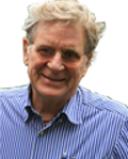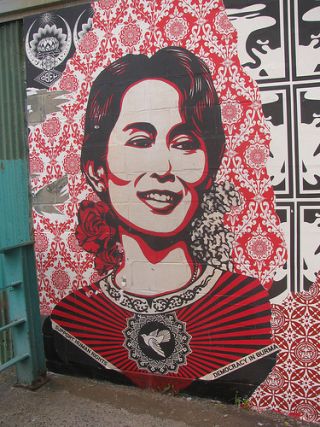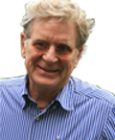
Anger
Cool Revolution Part II
How to break the anger habit & be a whole lot happier
Posted October 6, 2013
Imagine if we dropped our need to perpetually be seen as right, our easy continuation of what we’re used to, our urge to go along with what others think, and tried to practice the Buddha’s teaching that hatred only ceases through love? Shouting to drown out someone else’s noise and returning belligerence with belligerence may be automatic, but it tires us out. Rigidly categorizing people as all good or bad or right or wrong helps us feel secure, at least momentarily, but relating in that way doesn’t allow us to really connect and leaves us feeling misunderstood and alone.
Risking a new way of seeing helps us discover new ways of communicating that convey our feelings honestly without damaging ourselves or those around us.
We are ready for a global shift away from Us-versus-Them animosity—from a world dominated by the notion that “if you’re not with me, you’re against me, and therefore my enemy” to one of intensified interconnection (growing every day, thanks to the Internet), celebrated diversity, and creative, nonviolent solutions to social and political conflict. It is time to get over the notion that not being lost in enmity is a sign of weakness or giving in.
We are ready for another way of viewing strength and a fresh approach to improving life on this planet. Think of Nelson Mandela realizing that his own guards on Robben Island were imprisoned by the system, even as they imprisoned him.
Or the Burmese politician Aung San Suu Kyi, who spent 15 years under house arrest for promoting democracy, saying
“As time went on, like a lot of others who’ve been incarcerated, we have discovered the value of loving-kindness. We’ve found that it’s one’s own feeling of hostility that generates fear. I never felt frightened when I was surrounded by all those hostile troops. That is because I never felt hostility towards them. As Burmese Buddhists, we put a great emphasis on metta. (lovingkindness) It’s the same idea as in the biblical quotation: ‘Perfect love casts out fear’. While I cannot claim to have discovered ‘perfect love’, I think it’s a fact that you are not frightened of people whom you do not hate. Of course, I did get angry occasionally with some of the things they did, but anger as a passing emotion is quite different from the feeling of sustained hatred or hostility." 3
Or Martin Luther King, Jr., who insisted that we take the long view of justice in dealing with our enemies. “The arc of the moral universe is long, but it bends toward justice,” he said.
Such a cool revolution kicks off an enormous adventure of consciousness, a readiness to redefine power and view patience as strength rather than resignation. Even in horrible circumstances, we have the opportunity for meaningful change. I realized this after the bombing of the London Underground in July 2005, when, like most people, my initial response was sorrow for the lives lost and anxiety about getting on a subway back home in New York.
While this fear was natural and appropriate, Willa, the seven-year-old daughter of a friend, had another perspective. On being told what had happened in London, her eyes filled with tears and she said, “Mom, we should say a prayer.” As she and her mother held hands, Willa asked to go first. Her mother was stunned to hear her daughter begin with, “May the bad guys remember the love in their hearts.” Hearing that, my own heart leaped to another level altogether.
The much beloved Hindu guru Neem Karoli Baba often said, “Don’t throw anyone out of your heart.” Some of the most powerful healings—and greatest adventures—of our lifetime can come about as we learn to live by this dictum. Then we will have no qualms about acknowledging our enemies as our greatest teachers. Above all, we’ll be able to embrace the world.

Excerpt from Love Your Enemies: How to Break the Anger Habit & Be a Whole Lot Happier Copyright © 2013 by Sharon Salzberg and Robert Thurman. Excerpted by permission of Hay House.
3 From chapter 10, Voice of Hope by Aung San Suu Kyi and Alan Clements. Seven Stories press Oct 7, 1997
4 From Dr. King’s address to the Tenth Anniversary Convention of the Southern Christian Leadership Conference, Atlanta, August 16, 1967.

